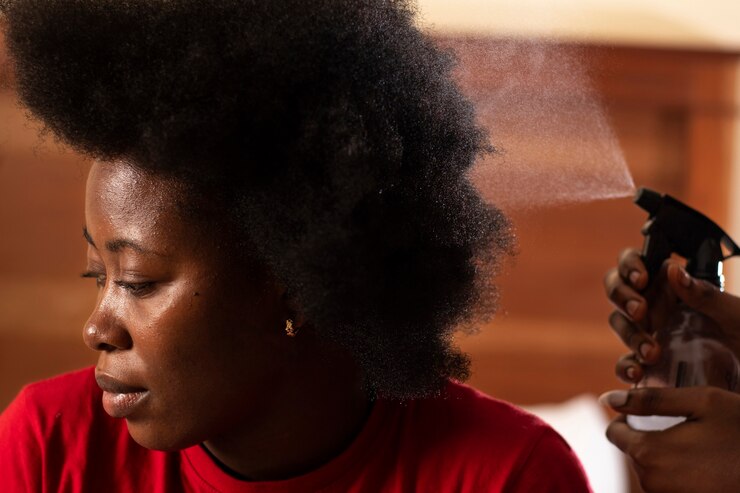Hair loss, whether due to genetics, health conditions, or lifestyle factors, can be a distressing experience for many individuals. In South Africa, where diverse hair textures and styles are celebrated, managing hair loss requires a tailored approach that considers both cultural practices and modern solutions. From embracing natural remedies to seeking professional guidance, here are some effective haircare tips for managing hair loss in South Africa.
- Understand the Causes:
Before addressing hair loss, it’s crucial to understand its underlying causes. Hair loss can result from various factors, including genetics, hormonal imbalances, stress, nutritional deficiencies, and certain medical conditions such as alopecia and thyroid disorders. Identifying the root cause of your hair loss can guide you toward the most appropriate treatment and management strategies. - Embrace Natural Remedies:
South Africa is rich in natural resources that can promote hair health and stimulate growth. Embrace traditional remedies such as aloe vera, castor oil, coconut oil, and olive oil, which have been used for centuries to nourish and strengthen hair. These natural ingredients are readily available and can be incorporated into your haircare routine to help combat hair loss. - Maintain a Healthy Diet:
A balanced diet plays a crucial role in promoting hair health and preventing hair loss. Ensure you’re consuming a variety of nutrient-rich foods, including fruits, vegetables, lean proteins, whole grains, and healthy fats. Incorporate foods rich in vitamins, minerals, and antioxidants, such as vitamin A, vitamin C, vitamin E, iron, zinc, and omega-3 fatty acids, which are essential for healthy hair growth. - Avoid Harsh Chemicals:
Be mindful of the haircare products you use, as harsh chemicals and ingredients can exacerbate hair loss and damage. Opt for gentle, sulfate-free shampoos and conditioners formulated for your hair type and concerns. Avoid over-processing your hair with chemical treatments such as relaxers, perms, and excessive heat styling, as these can weaken the hair shaft and contribute to hair loss over time. - Practice Gentle Haircare:
Handle your hair with care to minimize breakage and damage, especially if you’re experiencing hair loss. Use a wide-tooth comb or your fingers to detangle wet hair, starting from the ends and working your way up to the roots. Avoid pulling or tugging on your hair, and opt for loose hairstyles that minimize tension on the scalp, such as braids, buns, and ponytails. - Manage Stress:
Chronic stress can contribute to hair loss by disrupting the hair growth cycle and triggering shedding. Practice stress-reducing techniques such as mindfulness, meditation, deep breathing exercises, yoga, or engaging in hobbies and activities that bring you joy. Prioritize self-care and make time for relaxation to support overall well-being and promote healthy hair growth. - Consult with a Professional:
If you’re experiencing significant or prolonged hair loss, it’s essential to consult with a qualified healthcare professional or dermatologist for personalized advice and treatment options. They can assess your hair and scalp health, identify any underlying conditions contributing to hair loss, and recommend appropriate interventions, such as prescription medications, topical treatments, or hair transplantation procedures. - Consider Scalp Massage:
Scalp massage can improve circulation to the hair follicles, promote relaxation, and stimulate hair growth. Incorporate gentle scalp massage into your haircare routine using your fingertips or a scalp massage brush. You can enhance the experience by using nourishing oils or serums formulated to support scalp health and hair growth. - Protect Your Hair from Environmental Damage:
Protect your hair from environmental stressors such as sun exposure, pollution, and harsh weather conditions, which can contribute to hair damage and breakage. Wear a hat or scarf to shield your hair from the sun’s harmful UV rays, and rinse your hair with clean water after swimming in chlorinated pools or saltwater to remove any damaging residues. - Seek Support:
Dealing with hair loss can be emotionally challenging, so don’t hesitate to seek support from friends, family, or support groups who can offer encouragement, empathy, and understanding. Remember that you’re not alone, and there are resources available to help you navigate this journey with confidence and resilience.
Managing hair loss in South Africa requires a holistic approach that addresses both physical and emotional well-being. By embracing natural remedies, maintaining a healthy lifestyle, practicing gentle haircare techniques, seeking professional guidance when needed, and cultivating a supportive network, you can empower yourself to nurture your hair and embrace its natural beauty. Remember that every journey is unique, and with patience, perseverance, and self-care, you can take proactive steps toward achieving healthier, stronger, and more resilient hair.








